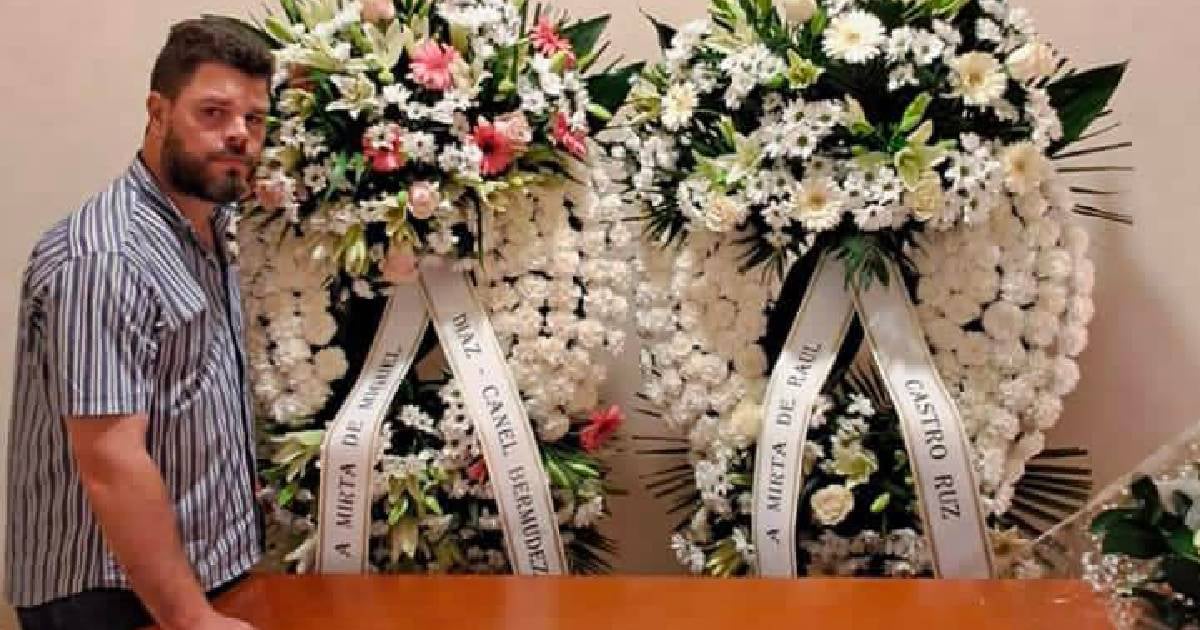
Related videos:
Army General Raúl Castro sent flowers to the wake of his former sister-in-law Mirta Díaz-Balart, who passed away on Saturday at the age of 95 in the Spanish capital.
“With deep emotion, I express my warmest and sincerest gratitude to my beloved great-uncle Raúl, who, with his customary greatness and human sensitivity, sent beautiful flowers to his soul sister, my grandmother Mirta,” wrote Fidel Antonio Castro Smirnov on X, son of Fidel Castro Díaz-Balart “Fidelito” (who committed suicide in 2018) and Russian citizen Olga Smirnova.
The posted images also show an offering in the name of the Cuban leader Miguel Díaz-Canel.
Mirta Díaz-Balart Gutiérrez, who was the first wife of the late Cuban dictator Fidel Castro and the mother of his eldest son, passed away this Saturday at the age of 95 in Madrid.
She was born in Havana on September 30, 1928, the daughter of a wealthy Cuban politician.
He was studying Philosophy at the University of Havana when he met Fidel, a law student and student leader. They married in 1948, despite her family's opposition, which nonetheless financed the wedding. They spent their honeymoon in Miami and New York.
In 1949, Fidelito was born, the only child of the couple. They divorced in 1955, while Fidel was in exile in Mexico. She retained sole custody of the child.
In 1956, Mirta married lawyer Emilio Núñez Blanco, who came from a family loyal to Fulgencio Batista and was the son of a former Cuban ambassador to the UN, Emilio Núñez Portuondo.
A report by the Spanish newspaper El Mundo from 2016 recounts that when Fidel learned of the wedding, he sent for his son to come to Mexico under the pretense of wanting to say goodbye to him, in case he died in his political struggles. However, once there, he forcibly detained him. Ultimately, it was Núñez Portuondo himself who rescued Fidelito.
After the triumph of the revolution, in 1968, Mirta and her husband, parents of two daughters, Mirta and América Silvia, permanently moved to Spain, while Fidelito was sent to study in the Soviet Union.
Emilio, a staunch opponent of Castroism, collaborated with several newspapers in Miami. She, for her part, maintained a low profile throughout her life, never appearing in the media and never speaking about her past or her relationship with Fidel.
"He never spoke badly or well of Fidel, he never spoke at all. Even for those of us who knew his past, it was a topic he wouldn't mention, perhaps because he wanted to erase that chapter of his life," revealed a close friend to El Mundo.
Filed under: